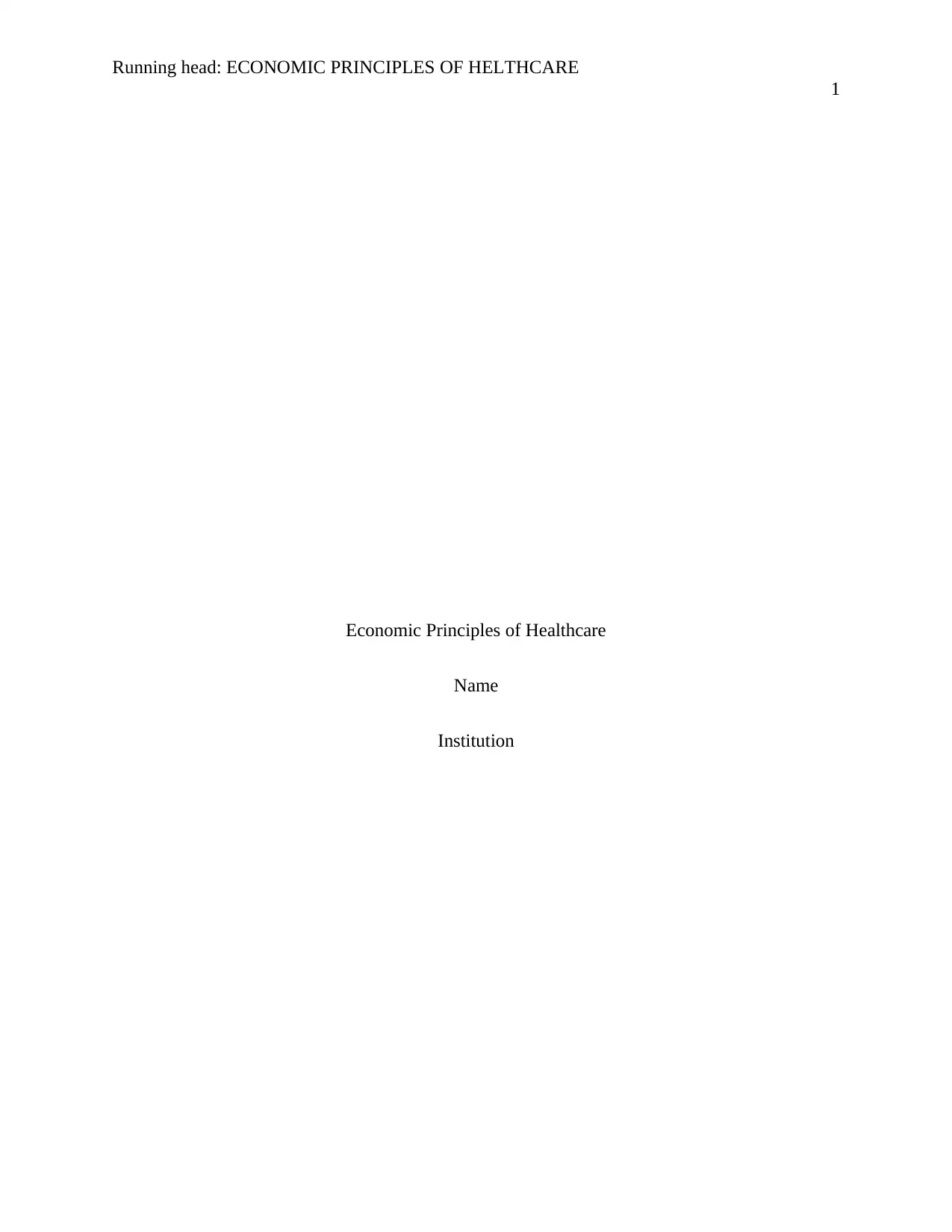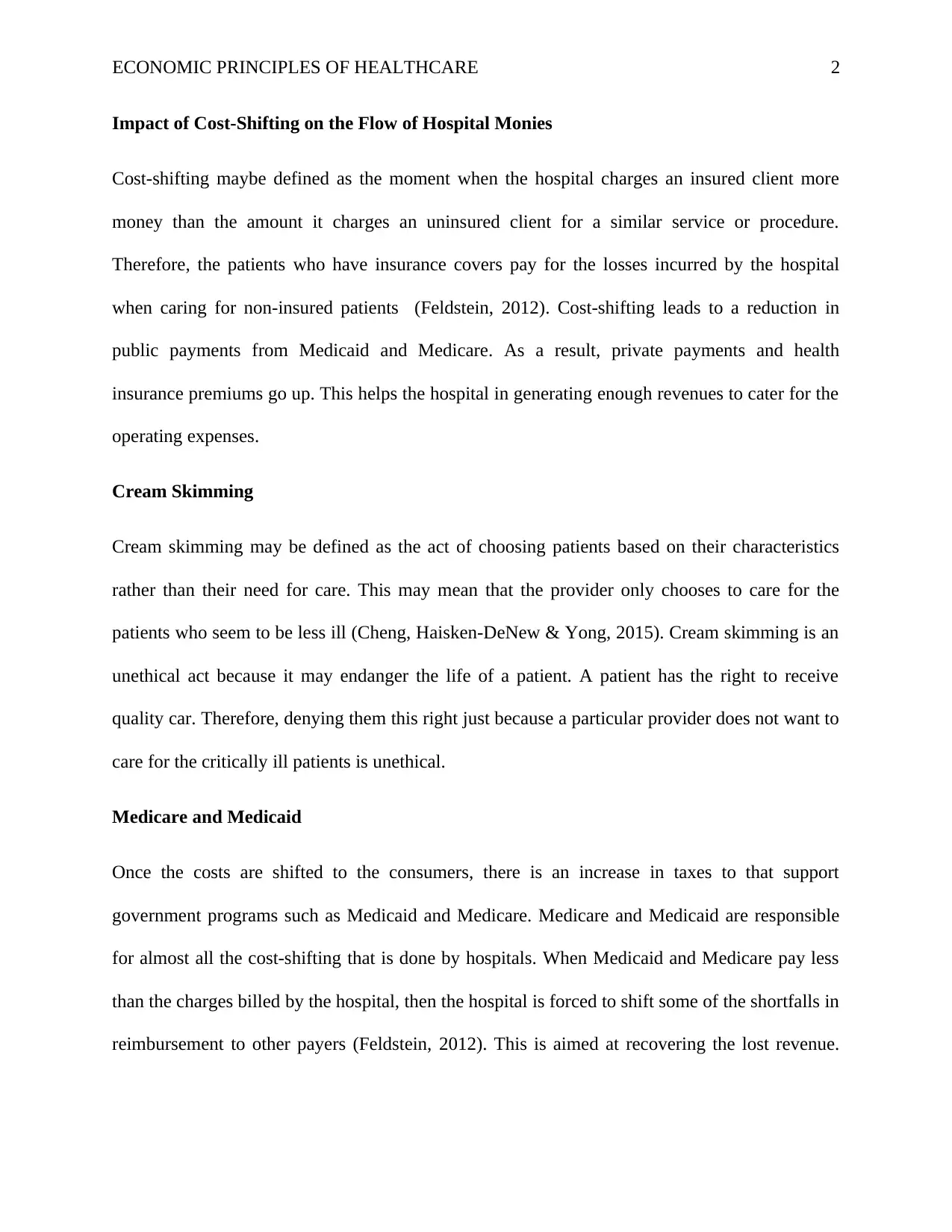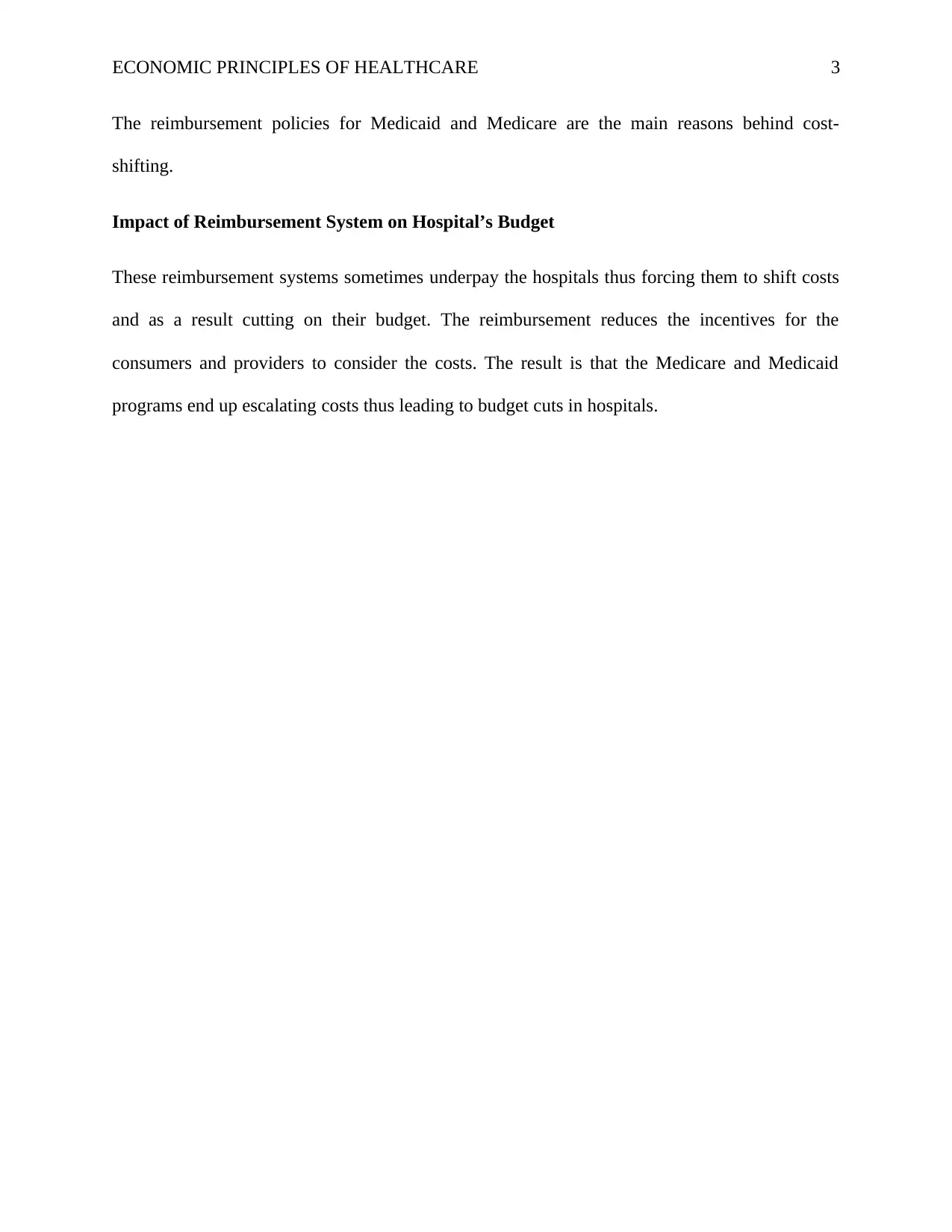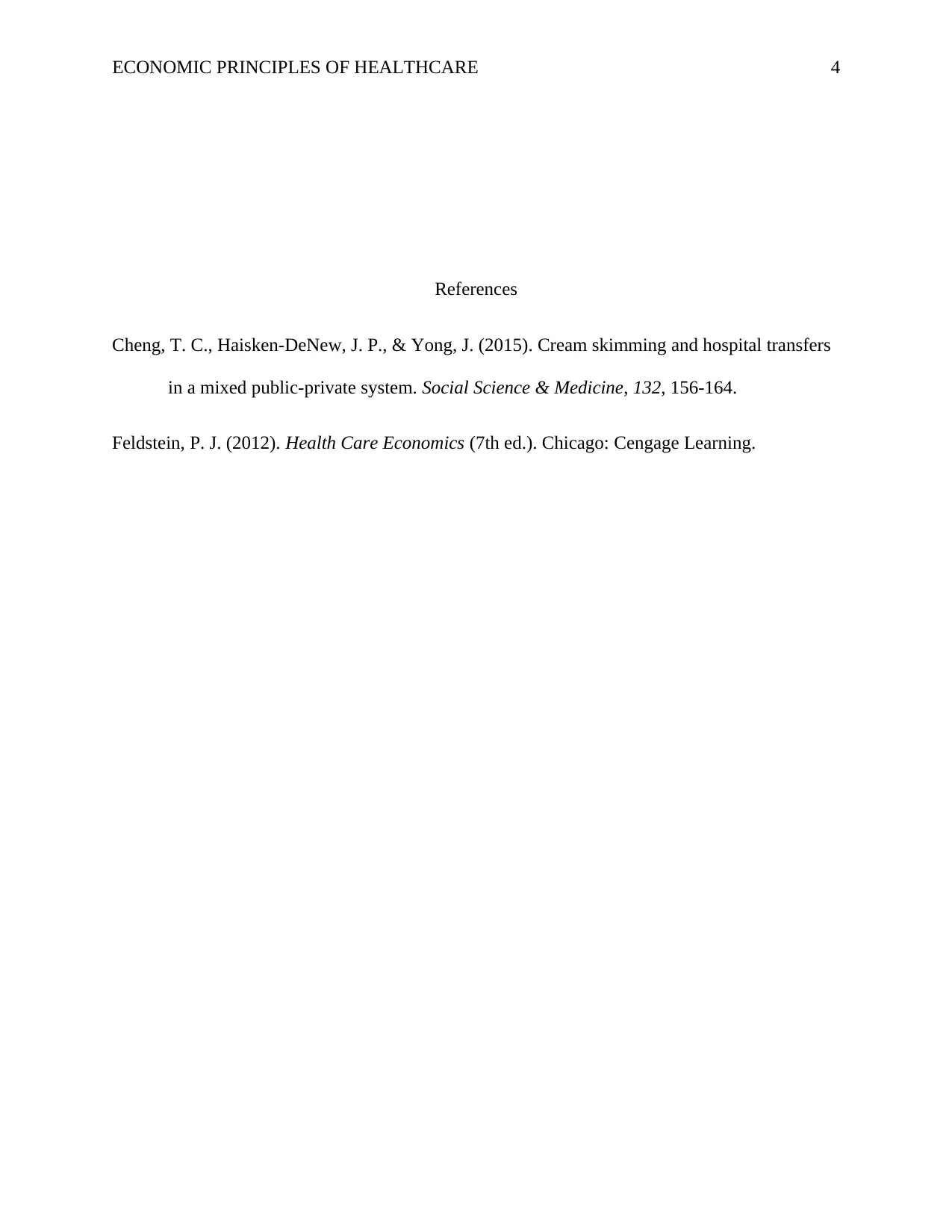Economic Principles: Cost-Shifting and Hospital Reimbursement Impact
VerifiedAdded on 2023/04/23
|4
|472
|194
Essay
AI Summary
This essay examines the economic principles of healthcare, focusing on cost-shifting, cream skimming, and the impact of Medicare and Medicaid reimbursements on hospital finances. Cost-shifting occurs when hospitals charge insured patients more to cover losses from uninsured patients, leading to increased private payments and health insurance premiums. Cream skimming, the practice of selecting less ill patients, raises ethical concerns. The essay highlights how Medicare and Medicaid reimbursement policies contribute to cost-shifting, as underpayment forces hospitals to recover revenue from other payers. Ultimately, these reimbursement systems can reduce incentives for cost consideration, escalate costs, and lead to budget cuts for hospitals.
1 out of 4





![[object Object]](/_next/static/media/star-bottom.7253800d.svg)